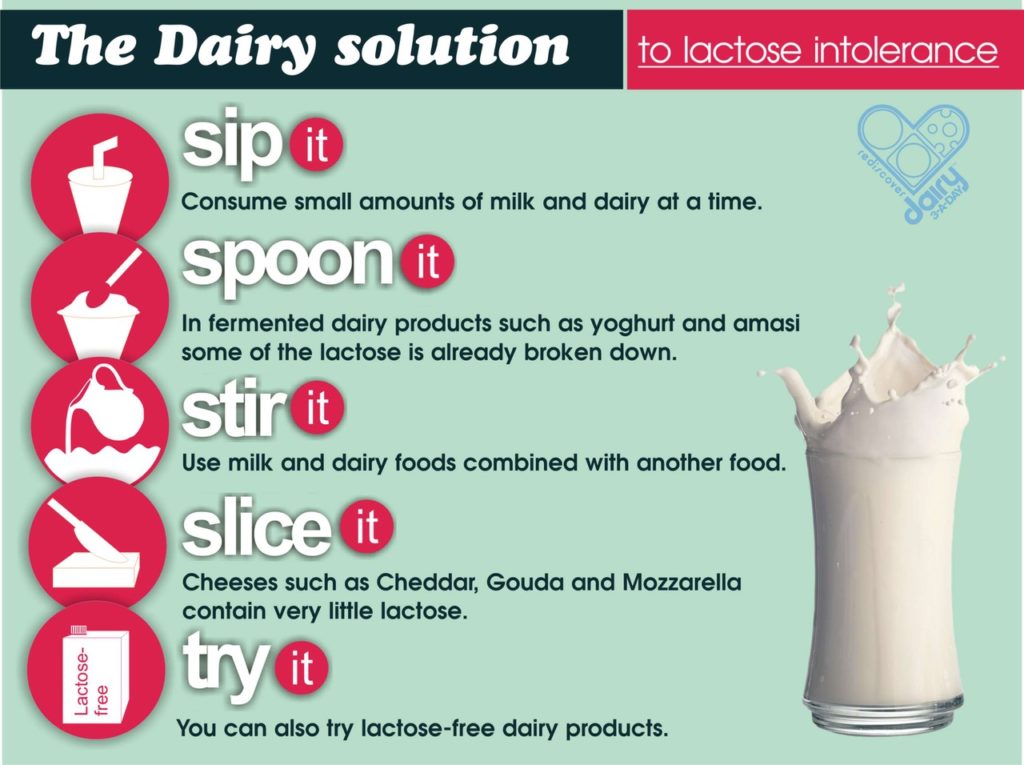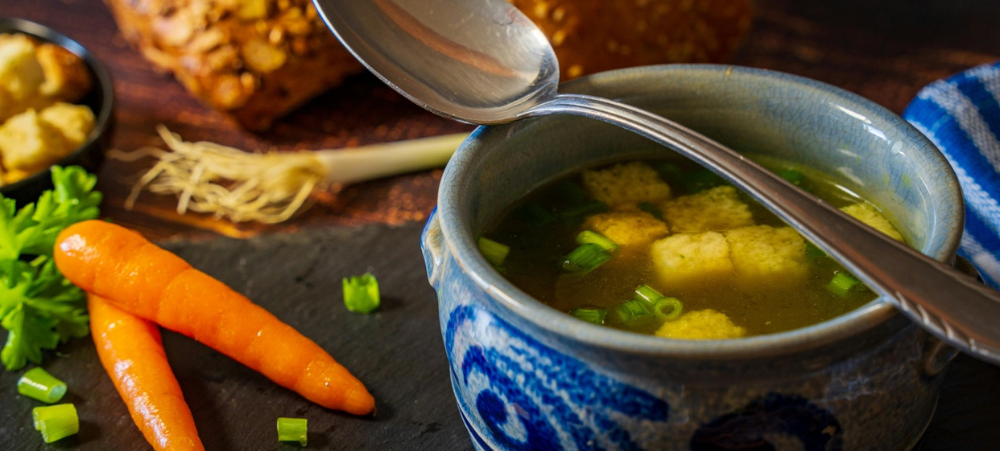“Lactose intolerance is not a milk allergy, but a gastrointestinal disturbance that happens after consuming more lactose than the body can handle”, says Maretha Vermaak, registered dietitian at Rediscover Dairy. “It is merely the inability to digest the sugar naturally found in milk and milk products, called lactose.”
Lactose consists of two sugar components, namely glucose and galactose, bound together. During normal digestion, the body produces an enzyme called lactase to separate these two sugar components, so that they can be absorbed into the blood. If the body does not produce enough of the enzyme lactase, the two sugar units cannot be separated. The milk sugar then starts to ferment, which can lead to uncomfortable symptoms such as bloating, gas, loose stools and stomach pain.
Most people who are lactose intolerant can tolerate up to 12 g of lactose in a single dose and experience few or no symptoms. A cup of milk (250 ml) typically contains 12 g of lactose. Dairy foods such as milk, maas, yoghurt and cheese provide important nutrients such as protein, calcium and potassium. Everyone – young and old – needs these nutrients for good nutrition.

Lactose intolerance should not prevent you from having a healthy, balanced diet including milk and dairy products. Here’s how you can tolerate lactose better:
- Consume small amounts of milk and dairy at a time and space your intake throughout the day. Full-cream milk is tolerated better than low-fat or fat-free milk.
- Use milk and dairy foods combined with another food. For example, have milk with cereal or pap, stir plain yogurt or amasi into soup or have cheese on bread. Eating lactose-containing foods such as milk and other dairy products with other types of food slows the digestion of lactose and so helps to ease possible discomfort.
- Cheeses such as Cheddar, Gouda and Mozzarella contain very little lactose (less than 1 g lactose in a portion of 40 g) and are generally tolerated well.
- In fermented dairy products such as yoghurt and amasi some of the lactose is already broken down. As the live cultures in fermented dairy also improve lactose digestion, yoghurt and amasi are ideal choices if you are lactose intolerant.
- You can also try lactose-free dairy products.
Dairy products help to build strong bones and teeth and contribute to good overall health. So, don’t miss out! You can benefit from the nutrients in dairy even if you are lactose intolerant.
For any other questions about dairy, please visit: www.rediscoverdairy.co.za/askdairy/
- Why dairy for all-day focus and energy - May 28, 2025
- The power of dairy nutrition for active teenagers - September 19, 2024
- Why dairy has a significant place in sustainable diets - June 7, 2024





